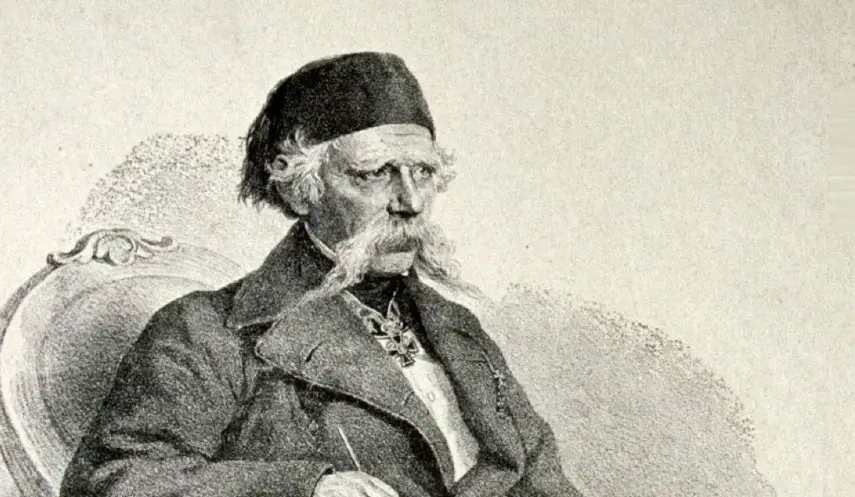VUK STEFANOVIĆ KARADŽIĆ - REFORMER OF SERBIAN LANGUAGE
Region - language - anniversary
11/05/2025
10:01

BIJELJINA, NOVEMBER 5 /SRNA/ – Vuk Stefanović Karadžić /1787–1864/, the reformer of the Serbian language and orthography and one of the most prominent figures in Serbian culture, was born on November 6, 1787.
Vuk received his basic literacy education in his village from a merchant relative, then attended school in Loznica and the Tronoša Monastery. During the First Serbian Uprising, he served as a scribe to Duke Ćurčija, later as a teacher in Belgrade and a customs officer on the Danube near Kladovo.
After the uprising collapsed in 1813 and his departure to Vienna, Vuk began collecting folk songs and oral traditions and working on the Serbian language and orthography, and soon he published the first collection of folk songs and a grammar book /Pismenica/, and in 1818, the Serbian Dictionary.
He also wrote historical accounts, engaged in ethnography, organized research throughout the later Yugoslav lands, and maintained extensive correspondence.
Vuk Karadžić fought against the autocracy of Prince Miloš Obrenović and a strong front of opponents to his language reform. He edited the almanac "Danica" and worked to introduce Europe to Serbian heritage and history.
Through his monumental work /collected in 39 volumes/, Vuk gained numerous supporters but also bitter opponents.
He found friends among Europe's leading intellectuals, made Serbian folk songs, culture, and history known across the continent, and was awarded an honorary doctorate by the University of Jena.
His reformist ideas prevailed decisively in 1847, when Branko Radičević's "Poems" were published, proving that artistic literature could be written in Vuk's language, while Đura Daničić's work "The War for the Serbian Language and Orthography" confirmed the validity of Vuk's linguistic principles.
An entire era of mature Serbian Romanticism developed under Vuk's influence.
After 33 years abroad, Vuk Karadžić's remains were transferred from Vienna to his homeland in 1897 and, alongside Dositej Obradović, laid to rest in the courtyard of the Cathedral Church in Belgrade.
Vuk's significance extends beyond Serbian borders. In 1861, the Zagreb City Assembly awarded him the Charter of Honorary Citizenship, granting him "all the rights, freedoms, and privileges belonging to any citizen of Zagreb by law and ancient custom".
The influence of Vuk's work on the Croatian language was best described by Ivan Broz, a renowned literary historian and linguist from the late 19th century.
By decision of the Croatian Parliament, Croats adopted Vuk's model of the literary language, including its accent system.
Certain linguists were assigned to develop the linguistic "instruments" and textbooks.
In 1892, Ivan Broz published Croatian Orthography, in whose preface he stated that "all this could equally well be called Serbian orthography".
In 1899, Croatian lexicographer Tomo Maretić published the Grammar and Stylistics of the Croatian or Serbian Language.
"What Cicero was to the Latins, Vuk is to us," wrote Maretić.
For more than a century, there was a street in Zagreb named after Vuk, which was renamed in 1992, during the period when Croatia severed all historical ties with Serbia and the Serbs.
Vuk Stefanović Karadžić died in 1864.

SERBS IN TEARS AND FEAR OVER OWNERSHIP OF ORTHODOX CEMETERIES AND CHURCHES

CVIJANOVIĆ DEMANDS ACCOUNTABILITY FOR SHAMEFUL CONCERT IN ŠIROKI BRIJEG

OSTOJIĆ URGES BiH AND EU TO ACT OVER GLORIFICATION OF FASCIST IDEOLOGIES





